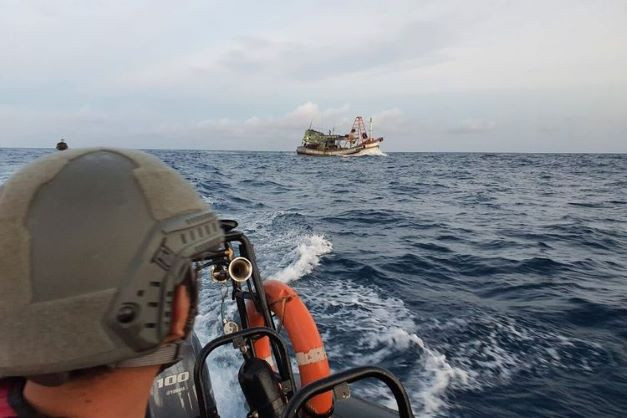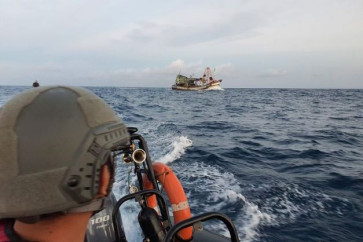Popular Reads
Top Results
Can't find what you're looking for?
View all search resultsPopular Reads
Top Results
Can't find what you're looking for?
View all search resultsWhy North Natuna Sea zonation regulation matters
None of the Indonesian policies have been effective in preventing China from asserting its nine-dash line claim and its fisherman and coastguard vessels from entering the Indonesian exclusive economic zone (EEZ).
Change text size
Gift Premium Articles
to Anyone
E
arlier this year, President Joko “Jokowi” Widodo signed a new presidential regulation on the zonation of North Natuna Sea. Newly enacted Presidential Regulation No. 41/2022 aims to boost governance in the contested maritime area.
Indeed, the North Natuna Sea, the southern part of South China Sea, has become one of Jokowi’s most significant security and foreign policy challenges since he took office in 2014. With his second and final term nearly coming to an end, it remains to be seen whether the new regulation will become his long-lasting legacy.
Throughout the Jokowi administration, there have been a number of policies that respond to escalating tension in the North Natuna Sea. The overlapping of Indonesia’s exclusive economic zone with China’s nine-dash line, for example, has often provoked a standoff between law enforcement agencies and navies of the two countries as well as threats to Indonesia’s fishermen.
Prior to the enforcement of the regulation, the Indonesian government had taken a variety of measures in response to the tension. Among the initiatives were Jokowi’s visit to North Natuna Sea to chair a meeting, sending a diplomatic note to Beijing asking for clarification, renaming the southern part of the South China Sea as the North Natuna Sea and deploying fishermen from Java to catch fish in the North Natuna Sea.
But none of the policies have been effective in preventing China from asserting its nine-dash-line claim and its fisherman and coastguard vessels from entering the Indonesian exclusive economic zone (EEZ).
One of the biggest challenges for Indonesia in safeguarding the North Natuna Sea from foreign vessels is the lack of resources, infrastructure and budget allocated for the law enforcement agencies. Critics insist the budget constraints should not justify the inadequate protection of Indonesia’s sovereignty and sovereign rights in the North Natuna Sea.
The state’s presence in the maritime territory, manifested not only by the law enforcement agencies but also civil society and commercial activities, is mandatory. In this regard, the new regulation serves as an important step to assure governance and presence in the North Natuna Sea, for at least two reasons.



















